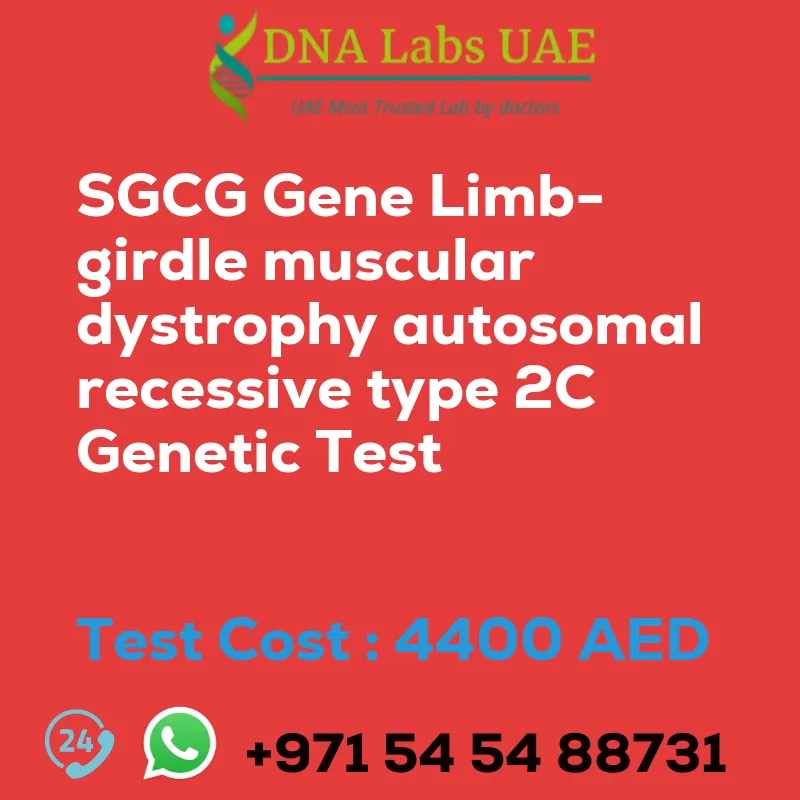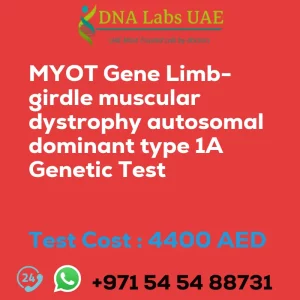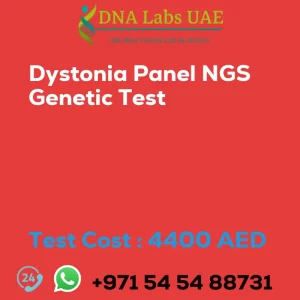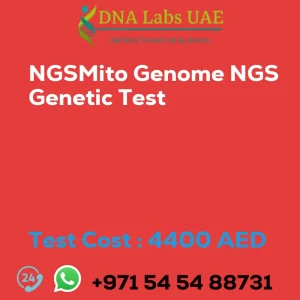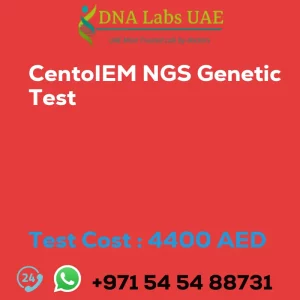SGCG Gene Limb-girdle muscular dystrophy autosomal recessive type 2C Genetic Test
Components: SGCG Gene Limb-girdle muscular dystrophy autosomal recessive type 2C Genetic Test
Price: 4400.0 AED
Sample Condition: Blood or Extracted DNA or One drop Blood on FTA Card
Report Delivery: 3 to 4 Weeks
Method: NGS Technology
Test type: Neurological Disorders
Doctor: Neurologist
Test Department: Genetics
Pre Test Information: Clinical History of Patient who is going for SGCG Gene Limb-girdle muscular dystrophy, autosomal recessive type 2C NGS Genetic DNA Test. A Genetic Counselling session to draw a pedigree chart of family members affected with SGCG Gene Limb-girdle muscular dystrophy, autosomal recessive type 2C
Test Details: SGCG gene limb-girdle muscular dystrophy, autosomal recessive type 2C NGS genetic test is a genetic test that analyzes the SGCG gene for mutations associated with limb-girdle muscular dystrophy, autosomal recessive type 2C (LGMD2C). LGMD2C is a rare genetic disorder characterized by progressive muscle weakness and wasting primarily affecting the muscles of the shoulders, upper arms, and hips. It is caused by mutations in the SGCG gene, which provides instructions for making a protein called gamma-sarcoglycan. This protein is an essential component of a complex of proteins that helps maintain the structure and function of muscle cells. The NGS (Next-Generation Sequencing) genetic test is a high-throughput method that can rapidly sequence the entire SGCG gene and identify any mutations or genetic variants that may be present. This test can help confirm a diagnosis of LGMD2C and provide information about the specific genetic variant causing the condition. Knowing the specific genetic mutation can be important for determining the inheritance pattern of the disease, providing accurate genetic counseling, and potentially guiding treatment options in the future. It can also help in identifying at-risk family members who may carry the same mutation. It is important to note that this genetic test should be ordered and interpreted by a healthcare professional with expertise in genetics. Genetic counseling is also recommended both before and after the test to discuss the potential implications of the results.
| Test Name | SGCG Gene Limb-girdle muscular dystrophy autosomal recessive type 2C Genetic Test |
|---|---|
| Components | |
| Price | 4400.0 AED |
| Sample Condition | Blood or Extracted DNA or One drop Blood on FTA Card o |
| Report Delivery | 3 to 4 Weeks |
| Method | NGS Technology |
| Test type | Neurological Disorders |
| Doctor | Neurologist |
| Test Department: | Genetics |
| Pre Test Information | Clinical History of Patient who is going for SGCG Gene Limb-girdle muscular dystrophy, autosomal recessive type 2C NGS Genetic DNA Test A Genetic Counselling session to draw a pedigree chart of family members affected with SGCG Gene Limb-girdle muscular dystrophy, autosomal recessive type 2C |
| Test Details |
SGCG gene limb-girdle muscular dystrophy, autosomal recessive type 2C NGS genetic test is a genetic test that analyzes the SGCG gene for mutations associated with limb-girdle muscular dystrophy, autosomal recessive type 2C (LGMD2C). LGMD2C is a rare genetic disorder characterized by progressive muscle weakness and wasting primarily affecting the muscles of the shoulders, upper arms, and hips. It is caused by mutations in the SGCG gene, which provides instructions for making a protein called gamma-sarcoglycan. This protein is an essential component of a complex of proteins that helps maintain the structure and function of muscle cells. The NGS (Next-Generation Sequencing) genetic test is a high-throughput method that can rapidly sequence the entire SGCG gene and identify any mutations or genetic variants that may be present. This test can help confirm a diagnosis of LGMD2C and provide information about the specific genetic variant causing the condition. Knowing the specific genetic mutation can be important for determining the inheritance pattern of the disease, providing accurate genetic counseling, and potentially guiding treatment options in the future. It can also help in identifying at-risk family members who may carry the same mutation. It is important to note that this genetic test should be ordered and interpreted by a healthcare professional with expertise in genetics. Genetic counseling is also recommended both before and after the test to discuss the potential implications of the results. |

